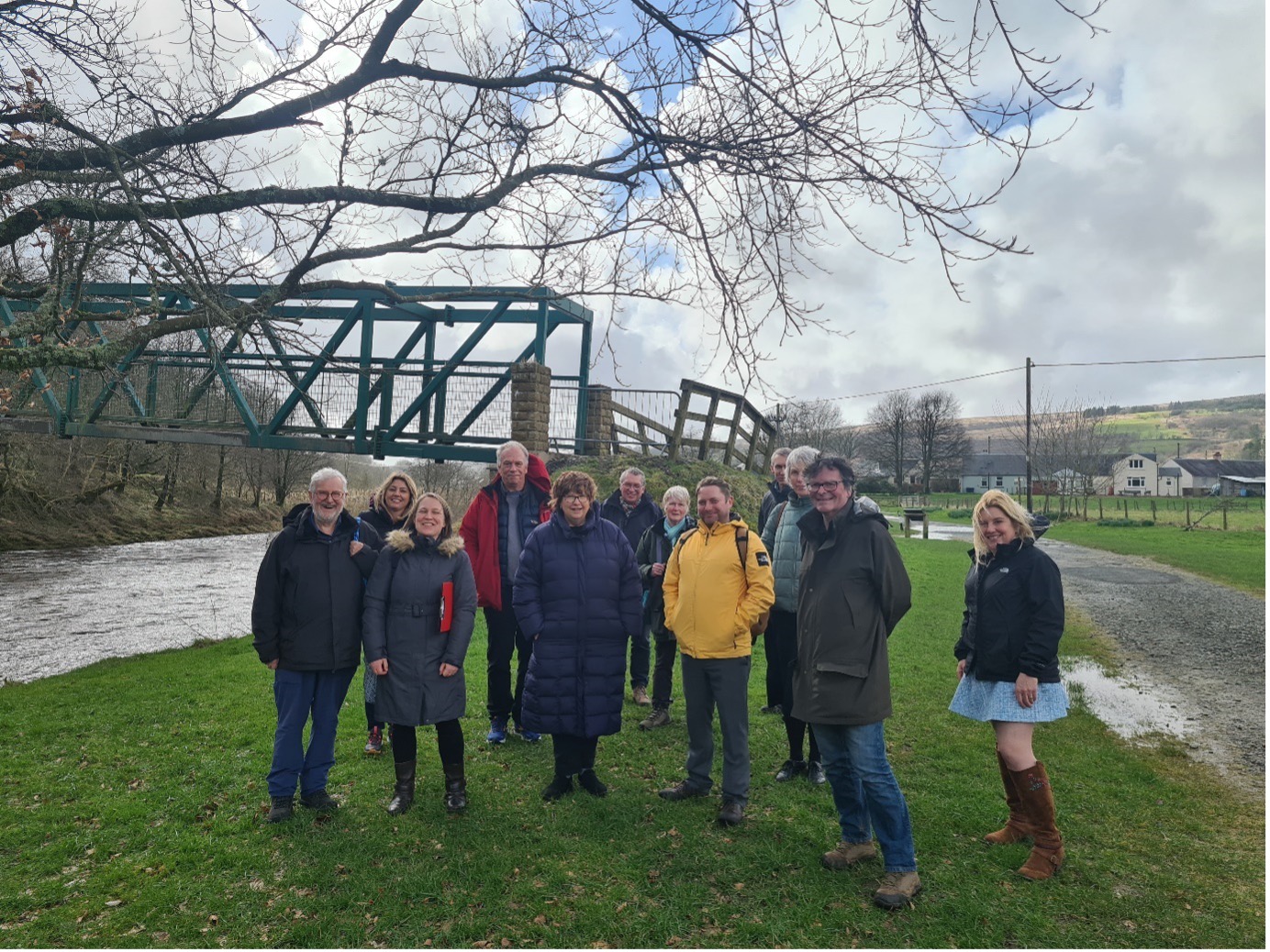Annual Impact Report 2024
South of Scotland Community Housing
Harry Whitmore, Community-led Housing Coordinator for South of Scotland Community Housing (SOSCH) talks about their work with communities in Scottish Borders to bring empty homes back to use.
SOSCH commenced its Kickstarter project with SEHP in November 2022.
The project aims to promote community-led housing solutions as a mechanism to bring empty homes and buildings back into use as affordable housing, building upon SOSCH successfully promoting this approach in Southwest Scotland.
Whilst there had been significant recent activity around delivered community-led housing projects in Southwest Scotland, particularly relative to empty or long term vacant buildings, the community-led housing sector in Southeast Scotland remained in its infancy. Analysis by SOSCH during governance and business review in 2020 suggested that this was the result of a lack of enabler support in the Southeast. However, the organisation already had a strong track-record of delivery and an understanding of the key partnerships, both community and stakeholder, required to further develop the sector.
The Kickstarter project provided match funding to enable the recruitment of SOSCH’s first Community-led Housing Coordinator in Southeast Scotland. The focus of this role is to support community organisations to identify localised housing need and to develop solutions within their communities, with a particular focus on repurposing long-term empty homes and buildings via the process of community asset ownership. The longer-term objective will be to create a pipeline of community-led housing projects in Southeast Scotland that are meeting an evidenced demand.
Prior to the Kickstarter project commencing, SOSCH worked to build key stakeholder partnerships in the Southeast, particularly with Scottish Borders Council (SBC) and Registered Social Landlords. SOSCH’s pre-existing relationship with South of Scotland Enterprise (SOSE) also played a critical part in relationship development.
Over the course of the project, the CLH Coordinator has worked to (i) further develop and diversify stakeholder partnerships critical to the development of and strategic support for CLH projects, and (ii) raise profile and awareness of community-led housing across communities in Southeast Scotland.
The project has been guided by a Steering Group, comprising SBC members (including their Empty Homes Officer). SOSCH has, over this period, been integrated into SBC housing policy, reflected by inclusion as a key delivery partner in the Local Housing Strategy for the region.
Concurrently, SOSCH has built relationships with local authority’s communities’ team and have participated in Area Partnership Meetings. Held in the five localities of the Scottish Borders, these are attended by community councils and representatives of other community anchors.
In addition, SOSCH has also worked to develop key strategic relationships within South Lanarkshire Council. Over the first year of the Kickstarter project, the CLH Coordinator received direct enquiries from approximately thirty communities in Southeast Scotland.
In order to promote knowledge exchange around community-led housing. SOSCH collaborated with key partners in the region, particularly Borders Community Action. This included the organisation of a peer learning trip to Dumfries and Galloway with a number of Borders communities in March 2023. This allowed participating communities to visit completed community-led housing projects and to understand their local impacts.
As the Kickstarter has moved into its second year, SOSCH have undertaken five Housing Need and Demand Assessments (HNDA) reports on behalf of community organisations in Westruther, Stow, WATIF (Woolfords Auchengray and Tarbrax, South Lanarkshire), Newcastleton, and Mid-Berwickshire. The latter covers a number of individual communities over a broad geographic area, some of which have already engaged with SOSCH around community-led housing potential.
Following on from the HNDA work, the objective will be to utilise the evidence provided to move towards project development within the individual communities supported. This is already progressing with Stow Community Trust.
Moving forward, the project will continue to raise the profile and awareness of community-led housing. Earlystage engagement has been undertaken with a range of additional groups, and each will progress at its own pace. To date, the project has served to put in place the infrastructure and relationships required that will provide a strong platform from which future community-led housing projects that address local need and reuse empty buildings can be progressed.

